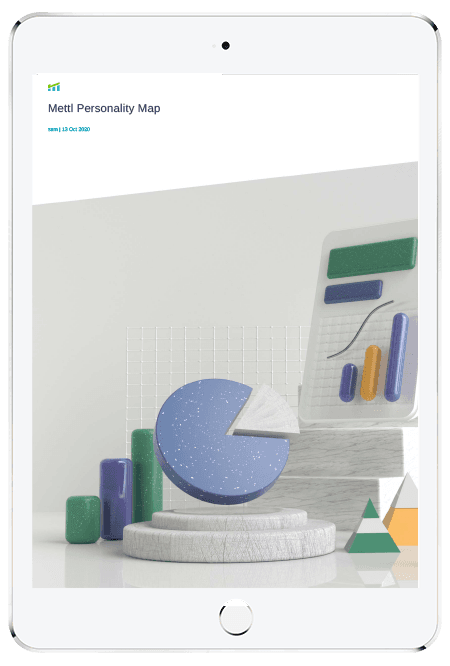Avail Data Analyst Assessment for skilled data analyst hiring
A Data Analyst Test evaluates the skills and abilities of individuals in data analysis. This test includes questions and tasks assessing a candidate's proficiency in data manipulation, visualization, statistical analysis, interpretation, and problem-solving. The test covers knowledge of data analysis tools and techniques, such as SQL, Excel, Python, R, and data visualization software. The Data Analyst Test aims to assess a candidate's ability to analyze and interpret data effectively, make data-driven decisions, and communicate insights derived from data.
Ready to Use
Coding
1-4 years
Moderate
60 minutes
19 MCQs + 1 coding
Data analyst - R, Data engineer - R
English Global, English India, English UK, Indonesian, English Singapore, English UAE, English Indonesia
Inside this Data Analyst Hiring Test
The Data Analyst Assessment is a pre-employment test to assess candidates' proficiency in R programming, libraries, and data analysis skills. This assessment comprehensively evaluates various R competencies, including general R knowledge, functions, performance, data manipulation, data prediction, indexing and subsetting data frames, and filters. It also focuses on essential topics related to R libraries such as tidyr, dplyr, ggplot2, and boxplot.
The assessment includes a hands-on programming section with a coding question, allowing applicants to showcase their R programming skills using a programming simulator. It ensures that candidates possess theoretical knowledge and can apply their R skills in real-world data analysis scenarios. By administering the Data Analyst Test, hiring managers can make informed decisions and select data analysts who can efficiently perform complex data analysis functions. The test gauges candidates’ suitability for the following roles:
- Data analyst - R
- Data engineer - R
Overview
Data analysts skilled in R programming are highly sought after in the global job market. Many companies and industries recognize the importance of hiring the best data analysts to meet their data-driven needs. Businesses relying heavily on data require skilled analysts to analyze it and generate insights that inform decision-making and drive meaningful outcomes. A data analyst's specific role and critical responsibilities may vary across industries, organizations, and departments.
Aspiring data analysts or researchers must know various tasks in R, like importing, cleaning, manipulating, and visualizing data. Proficiency in R and familiarity with popular packages like ggplot2 and dplyr are invaluable skills for data analysts. They are also known for their statistical skills, including hypothesis testing, data manipulation, and exploratory data analysis (EDA), as they work with critical datasets.
As data has become the most critical asset for businesses to thrive, hiring top talent in data analysis has become a top priority for employers. However, finding high-quality candidates in a competitive job market can be challenging. Additionally, assessing the skills and competencies of candidates for data analyst roles is a complex task, as each organization has specific talent requirements aligned with its business objectives.
One effective way to evaluate a candidate's suitability for a data analyst role is to use the Data Analyst with R Programming Test during the hiring process. This online screening method allows hiring managers to assess the candidate's on-the-job skills and readiness, ensuring alignment with the organization's requirements. By using the Data Analysis (Using R) Test, employers can have confidence that selected candidates meet the desired skills, competencies, and experience standards. The assessment result reports provide comprehensive insights into the candidate's performance, helping employers make informed decisions about their potential fit for the role.
Data Analyst (using R) Assessment Competency Framework
Get a detailed look inside the test
Data Analyst Competencies Under Scanner
Data Analyst (using R) Assessment
Competencies:
The R programming section evaluates candidates' proficiency in various areas, including functions, performance, data prediction, data manipulation, indexing, general knowledge, and subsetting data frames and filters.
The test also assesses candidates' skill sets in popular R libraries such as dplyr, ggplot2, tidyr, and boxplot.
In the hands-on programming section, candidates are presented with a coding question in R and must solve it using a programming simulator. This section allows candidates to demonstrate their practical 'R' coding skills.
Customize This Data Analyst Skills Test
Flexible customization options to suit your needs
Choose easy, medium or hard questions from our skill libraries to assess candidates of different experience levels.
Add multiple skills in a single test to create an effective assessment. Assess multiple skills together.
Add, edit or bulk upload your own coding questions, MCQ, whiteboarding questions & more.
Get a tailored assessment created with the help of our subject matter experts to ensure effective screening.
The Mercer | Mettl Data Analyst Assessment Test Advantage
Frequently Asked Questions (FAQs)
What are the essential skills for data analysts?
Listed below are some must-have skills for data analysts:
- R or Python statistical programming
- Data visualization
- Critical thinking
- SQL
- Machine learning
- Microsoft Excel
- Presentation skills
How to secure the best data analysts for your team?
Listed below are some must-have skills for data analysts:
- R or Python statistical programming
- Data visualization
- Critical thinking
- SQL
- Machine learning
- Microsoft Excel
- Presentation skills
What is a data analyst hiring assessment?
Listed below are some must-have skills for data analysts:
- R or Python statistical programming
- Data visualization
- Critical thinking
- SQL
- Machine learning
- Microsoft Excel
- Presentation skills


